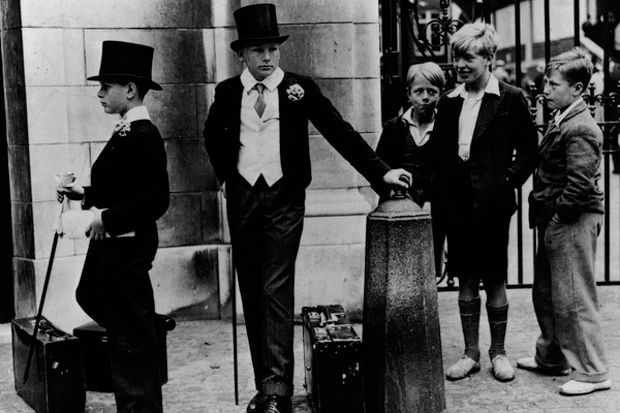There’s a warning buried in the detail of the new report by the Social Mobility and Child Poverty Commission on why top companies employ so few applicants from comprehensive schools: ‘Though this study provides valuable insights into barriers to the elite professions, there are nevertheless some limitations associated with the chosen research methodology. As a small-scale qualitative study, the aim is to explore issues and generalisability is limited.’
But most pundits who’ve commented so far missed this caveat. ‘New research… reveals the privileged choose and look after their own,’ wrote Owen Jones in the Guardian. ‘They don’t like accents that sound a bit, well, “common”.’ Grace Dent made the same point in the Independent: ‘Elite financial services and legal firms are reportedly operating a “poshness test” that systematically locks out talented working-class people.’
I’ve read the report and it contains little hard evidence that high-paying professions are discriminating against applicants from disadvantaged backgrounds. The researchers interviewed people involved in recruitment at 14 top law, accountancy and financial services firms and found what, at best, could be called anecdotal evidence that they apply an informal ‘poshness test’ — favouring those who’ve travelled widely, say. True, the report also contains some hard data — such as the fact that over half of recruits at these firms were educated at independent schools or grammar schools — but by itself that’s not evidence of discrimination. On the contrary, all 14 companies use a variety of methods, including psychometric testing, to ensure they recruit the most talented graduates, regardless of social origins.
The problem isn’t that these HR departments are staffed by snobs, but that insufficient numbers of bright working-class people fill in application forms. For the most part, that’s because these companies concentrate their marketing efforts on Britain’s 24 Russell Group universities and ten in particular — Oxford, Cambridge, Bristol, Durham, Imperial, Warwick, UCL, Nottingham, Leeds and Manchester.









Comments
Join the debate for just £1 a month
Be part of the conversation with other Spectator readers by getting your first three months for £3.
UNLOCK ACCESS Just £1 a monthAlready a subscriber? Log in